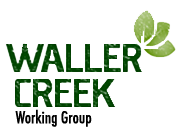


 As we have begun our semester in Team Ruth, the chemistry stream, we have performed multiple canned experiments to familiarize ourselves with techniques we may encounter during our research. As part of the LC-MS team, we have completed canned labs for LC-MS and GC-MS, liquid chromatography-mass spectrometry and gas chromatography-mass spectrometry, respectively. We analyzed samples of hot sauce and coffee to determine specific chemical concentrations in those everyday items. A significant aspect of our research stream is relevance, as we connect our work to the world around us. We hope to use the data we collect to make positive changes to the waterways around our campus, with Waller Creek flowing directly through campus, to promote healthy urban ecosystems.
As we have begun our semester in Team Ruth, the chemistry stream, we have performed multiple canned experiments to familiarize ourselves with techniques we may encounter during our research. As part of the LC-MS team, we have completed canned labs for LC-MS and GC-MS, liquid chromatography-mass spectrometry and gas chromatography-mass spectrometry, respectively. We analyzed samples of hot sauce and coffee to determine specific chemical concentrations in those everyday items. A significant aspect of our research stream is relevance, as we connect our work to the world around us. We hope to use the data we collect to make positive changes to the waterways around our campus, with Waller Creek flowing directly through campus, to promote healthy urban ecosystems.
The performance of the canned labs ultimately leads up to our individual research projects, for which we have each individually written a research proposal. These experiments introduced us to various laboratory techniques, instrumentation, and data analysis that we will utilize to fulfill our own research objectives. The LC-MS team is split into two different research areas with half of us investigating pesticides and the other half investigating antibiotics. Both of these substances are relevant to our sampling locations, as there are both areas of parks and landscaping as well as hospitals located near Waller Creek. I think it will be interesting to see what chemicals we can detect in Waller Creek.
As part of the pesticide group, I plan to investigate the concentrations of atrazine, a common pesticide with detrimental impacts to the environment and organisms that are exposed to it, to determine how the concentrations of this pesticide in Waller Creek fluctuate as a result of rainfall events. If atrazine is applied to areas near the creek, it may flow through the runoff into Waller Creek, contaminating the water. By entering waterways, atrazine and other pesticides may contaminate drinking water, causing negative consequences. My investigation will measure the concentrations of atrazine at sample sites before and after rainfall events to determine if atrazine is entering Waller Creek from any locations.
Reflecting back on the emphasis of relevance, the relevance of my investigation ties in with the impacts that atrazine could cause if found in the waterways. It can impact the health of the organisms living in or near the creek, but it can ultimately impact humans. Therefore, I think this investigation is important to conduct to help maintain healthy ecosystems. With this being said, I think many of the investigations that our stream will conduct each will encompass some sort of relevance to improve the overall health and quality of the creek.
Another important action that we take with our research proposals is to peer review another student’s work. While we may not be familiar with every aspect of their proposal, we can develop a significantly in depth understanding of the objectives and procedures of their investigation. By doing these reviews, not only do we help each other to strengthen our scientific writing skills, we also improve our own skills. While certain aspects might not apply to every individual, peer reviews serve as a reflection point to check your own paper for mistakes or improvements you might have pointed out in somebody else’s paper. After I peer reviewed a paper, I made a list of what I should make sure to include in my own revision of my research proposal based on my findings. Peer reviews provide many benefits for the students in our stream, allowing us to improve our communication skills.
In our stream, not only are we learning skills and techniques that will help us with our research and lab experience, we are also learning other skills that are relevant to other aspects of our lives. Through the papers we write and the reviews we conduct, the feedback we receive allows us to develop our writing skills. Overall, through the work we accomplish, our communication skills are strengthened, and we can transcend these skills through various situations throughout our lives.
Kamryn Szot
Team Chemistry
Urban Ecosystems Stream

